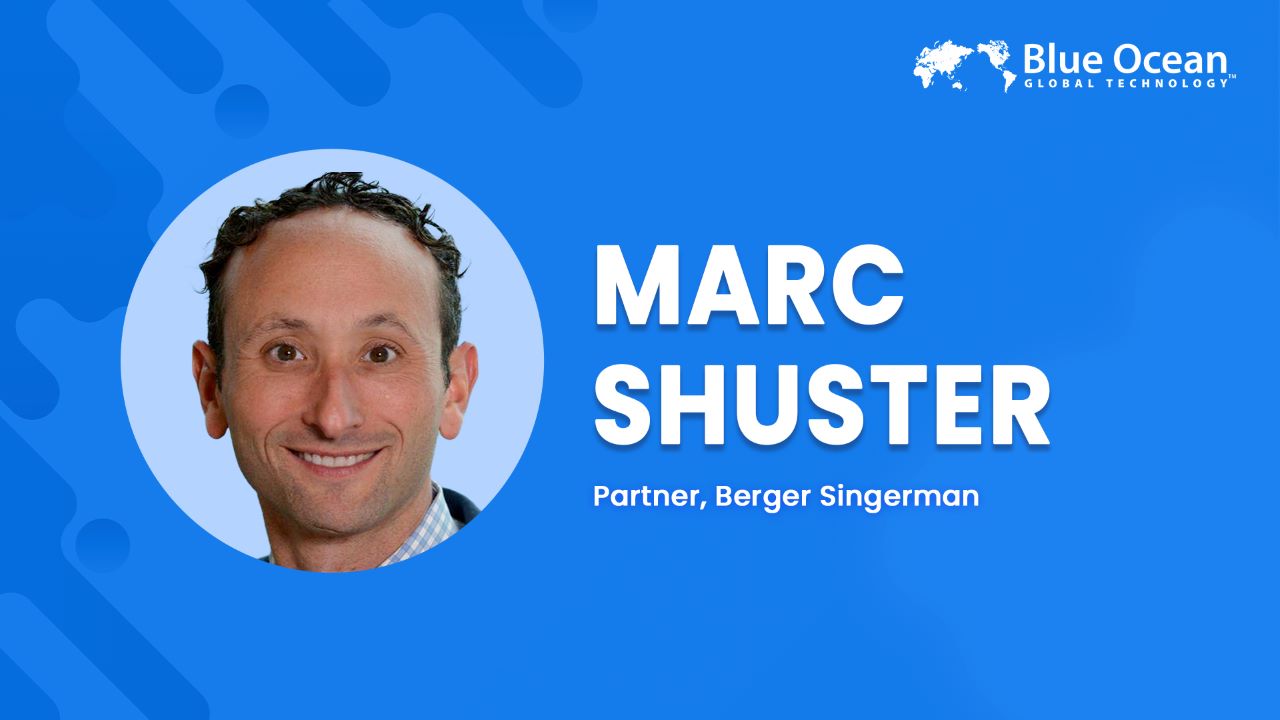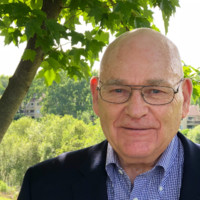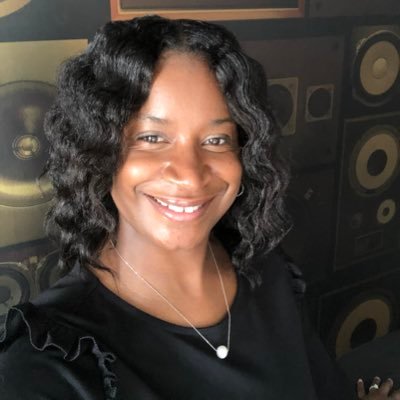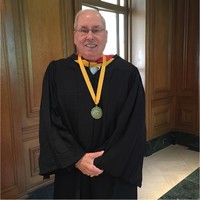About Marc Shuster
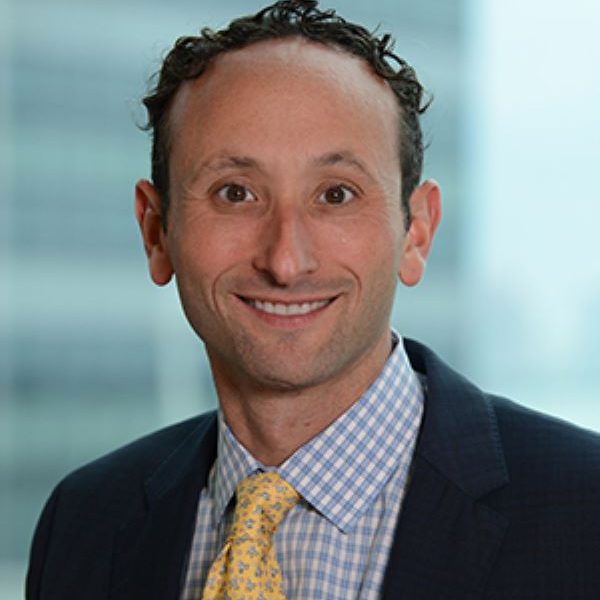
Marc Shuster is a Partner at Berger Singerman, where he leads his Family Office Group, representing nearly 140 global families. He also assists his clients with U.S. investments, tax-efficient structures, and business insights. With a strong foundation in finance influenced by his father’s career at Goldman Sachs, Marc brings a unique business-oriented approach to law. He crafts solutions for divorced couples to fairly divide high-value assets and derive profit without taking matters to court. His strong finance background allows him to create high-level financial analyses and offer 24/7 availability, including weekends and late nights. Marc combines legal expertise with authentic client relationships, seeking committed clients and encouraging integrity and open communication.
Blue Ocean: Tell us about your professional journey. What inspired you to pursue a career in law, and what continues to fuel your passion for the profession today?
Marc: I grew up in a family where finance and business were introduced to me from a very young age. I watched my dad work at Goldman Sachs, and he regularly engaged me in discussions about investment strategies and market dynamics. These interactions became informal tutorials and sparked my interest in financial analysis. Reading publications like The Wall Street Journal helped me deepen my understanding of alternative investments, including real estate, art, classic cars, and baseball card collections.
Over time, I observed the challenging side of the financial community, particularly massive layoffs and macroeconomic pressures that impacted even the most established institutions. This experience highlighted for me the limited personal control in corporate finance roles and inspired me to pursue a legal career. I wanted to shape my own path while leveraging my financial skill set to become a business lawyer.
Today, I am a Partner at Berger Singerman, where I lead our Family Office Group in representing approximately 140 families from across the globe and helping them with U.S. investments, tax-efficient structures, and strategic business insights.
Blue Ocean: What does a typical day look like for you as a practicing attorney? Please share how you manage your time across advisory work, litigation, and client engagement.
Marc: A typical day for me includes a combination of strategic oversight, client calls, reviewing Excel spreadsheets and agreements, and ensuring that “the trains run on time” with the team.
We have a team of about nine lawyers that covers different business verticals, including advising families on corporate deals, real estate transactions, selecting financial advisors for their U.S. investments, and helping to set up Blocker Entities to ensure foreign investments enter the U.S. in a tax-efficient manner.

Blue Ocean: Which emerging trends in the legal profession most excite you, particularly those transforming client relationships, legal technology, or regulatory compliance?
Marc: Florida has, in many ways, emerged as a winner of the COVID pandemic. Many individuals have relocated from cities like New York and Chicago to Florida. As a result, a full force of private equity and hedge funds is now based in Miami. Big law firms followed suit, and Miami has become a real financial city. For a long time, it was a place where people came with wealth—it was difficult to arrive without it. But today, like New York or London, it’s a city where people can generate wealth. That transformation is significant and personally interesting to observe.
Another emerging trend is the role of AI and its disruption in the legal profession. We already see students using tools like ChatGPT to write papers, and law firms are beginning to integrate AI-based programs that can draft or edit legal documents. This development will likely bring changes to how we practice law. I strongly believe we can’t replace the human touch that the legal profession requires. To use a crude analogy, AI may eventually transform medicine with robots performing automated tests like MRIs. But people will still want a human being when making critical decisions. Similarly, my role extends beyond lawyer to psychologist, religious advisor, or a business leader. Clients look to me for both personal and professional guidance. AI can handle rote tasks, but it can’t replace the role of a trusted advisor.
Blue Ocean: Can you walk us through a particularly challenging case or legal matter you’ve handled, and explain your strategy for resolving it?
Marc: My work is more transactional work than case-based since I am a business lawyer. I often interact with high-net-worth individuals, who go through divorces. My expertise allows me to assist divorce lawyers in dividing billions of dollars in investments. Often, divorce lawyers are not equipped to handle the financial complexities involved
When a couple undergoes divorce, their corporate assets require a marital settlement agreement to determine the division of those investments. This could be a 50/50 split or a 60/40 allocation. In response, we have developed a suite of corporate programs designed to handle complex, high-net-worth divorces efficiently. One feature called “one-off” addresses the reality that some assets are so unique—such as artwork, classic cars, real estate, or corporate ownership stakes—that they cannot be divided. For instance, if a couple owns an original Da Vinci painting worth $10 million, we transfer the full painting to one party and the car collection to the other. We usually complete these transfers within one to two days, allowing clients to move forward without delay. This approach makes me very proud.
Blue Ocean: You’ve earned a strong reputation. How do you and your team continue to stay ahead in the highly competitive legal industry?
Marc: I believe the best way a professional service provider can keep their customer acquisition costs low is by maintaining consistent communication. Every day, I read five newspapers, including the Financial Times, the Wall Street Journal, and others. I keep a running awareness of the 140 families we represent. Almost daily, I find an article relevant to at least one of them.
From 5:30 to 7:30 a.m., I identify and share these insights— “Look at this article; it discusses X, Y, Z—exactly what we were talking about.” Clients recognize that I’m consistently thinking about their business. That’s why many of them say, “Marc isn’t just my lawyer, he’s my business partner.” My advice to anyone starting out in their profession: is to be highly communicative. That is how your client knows that you understand them and share timely, meaningful insights.
Blue Ocean: What core values or principles do you believe every great lawyer should uphold, regardless of their practice area?
Marc: Number one: you’re always on camera. Never speak poorly about others, especially in professional settings. You never know who knows whom. Always carry yourself with respect and professionalism.
Second: don’t be afraid to say “no.” I once had a client interested in Venezuelan oil during a time when the U.S. had embargoes. They could’ve routed it through another country, but it still risked violating U.S. laws. I told them “If you do this, I can’t be your lawyer.” That was enough to change their perspective. I’d rather sleep at night than push something unethical just to make a profit. One of the best compliments I’ve received is being called authentic. I don’t sugarcoat things. I tell clients the truth. More lawyers should embrace the same.
Blue Ocean: What are some common misconceptions people have about lawyers or the legal process?
Marc: A major misconception in the legal process is thinking about how long things actually take. TV shows like Suits make it seem like legal problems get solved in an hour like someone walks into a courtroom with the perfect answer and the case wraps up then and there. But that’s not how it works in real life. A typical deal takes six months. Litigation can last up to three years.
People often react emotionally to complex problems. But A few days or a week later, with a clearer perspective, the issue seems more manageable. Legal work is similar. It takes time to process the facts, form opinions, and reach sound judgment. TV has created unrealistic expectations about the speed and simplicity of legal outcomes.
Blue Ocean: What distinct value do you bring to your clients, especially when managing complex or high-stakes situations?
Marc: First, I was raised in a business environment. Many of my clients operate large, successful global businesses, and I regularly handle transactions across India, Singapore, Hong Kong, Morocco, and beyond. I am comfortable with financial concepts and data—from spreadsheets to top-line revenue, expenses, net operating income, GOPAR, and REVPAR—which most lawyers do not typically possess.
Second, I maintain a 24/7 commitment to client service. My day starts around 5:30 AM and often runs late into the night, including weekends. I follow up the same day, even if I miss a call. I don’t ask potential clients if they’re interested, I emphasize the need for commitment. Interest is not enough. My work demands more than a traditional schedule, and that’s the level I operate at.
Blue Ocean: How do you maintain emotional and psychological resilience when handling sensitive or high-pressure cases?
Marc: Resilience is all about mindset. I consider myself a “net seller” because I am resilient by nature and not discouraged by rejection. If a potential client isn’t interested, that’s perfectly fine. We can part on good terms. You can’t hinge your self-worth on one client or opportunity. That’s a recipe for burnout.
I probably don’t sign 30–40% of the people I meet, and I’ve learned to be fine with that. I’m always networking, attending events, and keeping the door open for new opportunities. Some convert, some don’t. If someone passes because of my style, my team, or our pricing, that’s their choice. I move on. Confidence is knowing there will always be someone else who’s the right fit.
Life is tough and many people in this profession carry personal baggage, whether from difficult upbringings, unhealthy relationships, or toxic work environments. But how you respond to adversity makes all the difference. Do you stay stuck or find a way forward? I always encourage the latter. Resilience protects your emotional well-being. Especially after COVID, staying mentally grounded and healthy is essential.
Blue Ocean: What advice would you offer to aspiring lawyers entering the profession today?
Marc: The best advice I can offer is to be flexible. The legal profession is changing—AI is already impacting document drafting. That doesn’t mean lawyers are obsolete, but it means you have to adapt.
When I was the hiring partner, I noticed that younger lawyers often stayed within narrow definitions of their roles. But success today requires openness to learning and trying new things. Your career won’t be linear. Most people have five to seven different careers in their lifetime—not just jobs, but entire shifts. So, be open to what’s ahead. The people who adapt go further.
Blue Ocean: What hobbies or interests do you enjoy outside of practicing law?
Marc: I’m a big outdoors person. I love hiking, being in the mountains, and surrounded by nature. I have a mountain home, and spending time there helps me feel centered. An ideal day would be hiking, observing and recording the plant and animal life, and just enjoying the smells and sounds of the forest. It’s a great retreat from the intensity of legal work and brings me inner peace.
Blue Ocean: Is there a guiding principle, legal philosophy, or quote that has significantly influenced your career and life?
Marc: My core principles are honesty, authenticity, openness, hard work, and strong communication. Authenticity means being upfront about your limitations. If you’re asked to do something new, say so and be willing to learn. On the other hand, saying, “I’ve never done this, and I don’t want to,” doesn’t lead to growth. Openness and adaptability, paired with a strong work ethic and clear communication, is how I’ve built my career.
Conclusion
Marc Shuster’s journey reflects a compelling blend of legal expertise, financial insight, and emotional intelligence. His perspectives on adaptability, authenticity, and commitment show that today’s lawyer must evolve beyond technical skills to serve as a strategic advisor and trusted partner. Whether handling complex divorces, advising global families, or embracing change, Marc’s dedication to excellence remains constant. His story is a powerful reminder that true success in law comes from resilience, continuous growth, and a genuine connection with the people you serve.
Do you have a personal or professional story that can inspire other people into becoming the best version of themselves?
You are welcome to share your journey with our audience.

